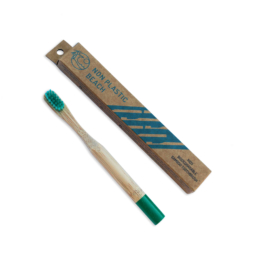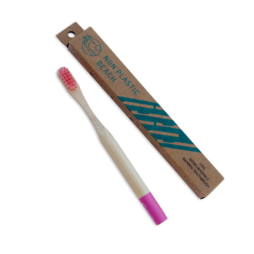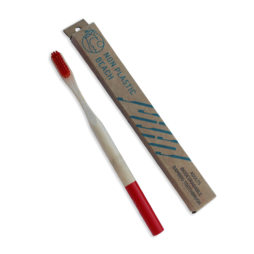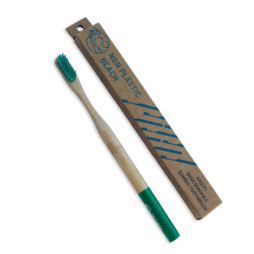Your Bamboo Toothbrush FAQ Answered
An astonishing 3.5 billion toothbrushes are dumped every year across the world and guess what? The very first plastic toothbrush ever invented is probably still sitting in landfill today. If those facts unsettle you, there is an eco-friendly solution: the bamboo toothbrush.
Bamboo has many benefits; it produces less waste, it’s sustainably sourced and it’s regenerative. It’s super sustainable because not only is it the fastest growing grass on Earth, it’s grown densely in clusters so to grow a lot of it, you don’t need tons of land. To be specific, you can crop around 60 tonnes per hectare compared with 20 tonnes for most trees.
Furthermore, bamboo will regrow year after year from the very same root, hence why it’s known as the ‘cut and come again’ crop. The clever root system reduces soil erosion, and the plant is sturdy, able to withstand extreme water conditions. Plus, it releases up to 35% more oxygen than other trees.
In comparison to plastic production, it’s pretty clear that bamboo is winning. But why should you choose bamboo for your teeth? Let’s answer your most popular questions.
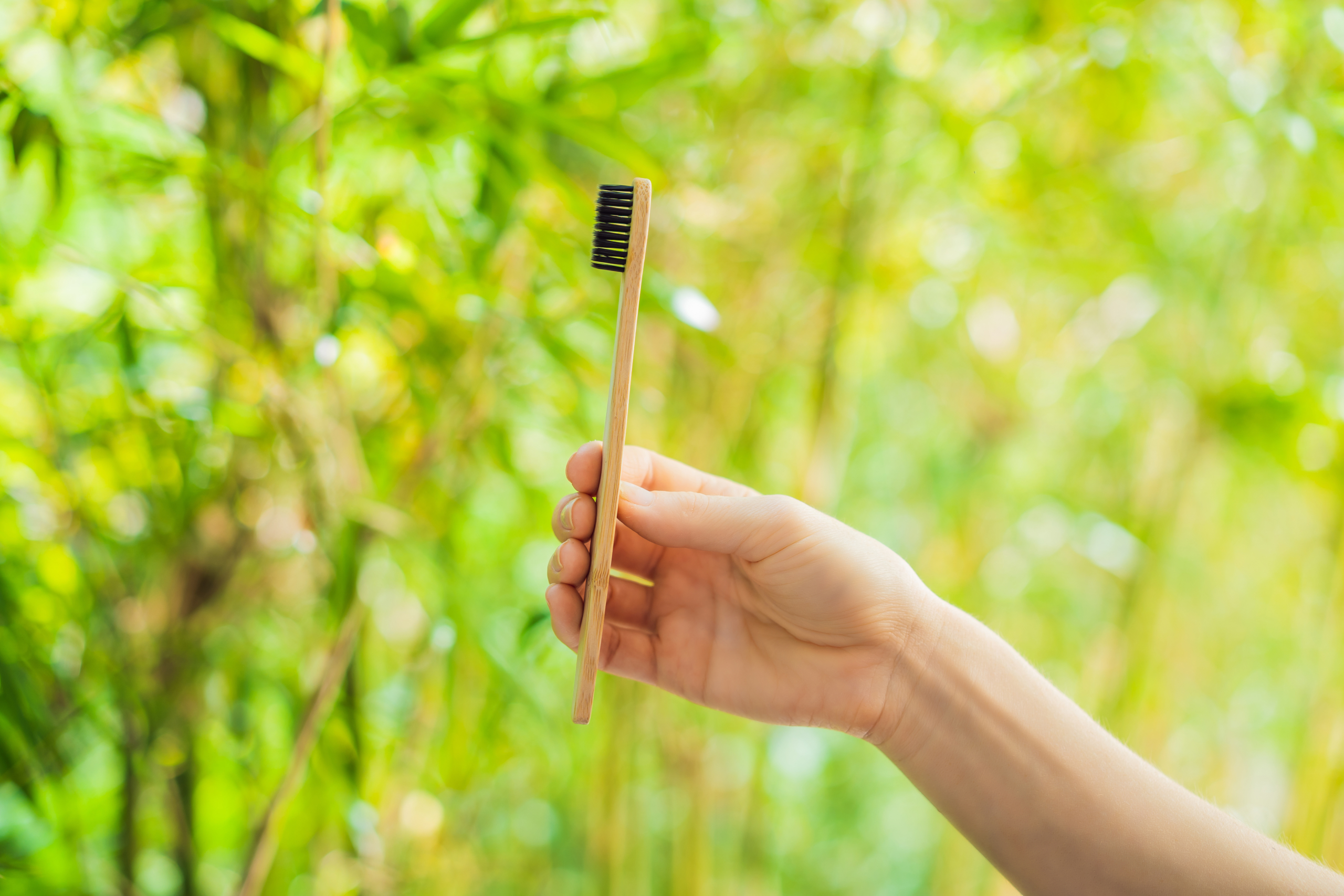
Can you compost bamboo toothbrushes?
Bamboo is 100% naturally compostable. The Non Plastic Beach Biodegradable Bamboo Toothbrush that can be found in our range of eco-friendly home products, has a biodegradable handle with mould protection. After use, you could toss the handle in your garden but that would take around five to ten years to decompose, still far better than the hundreds of years a plastic toothbrush takes to decompose in landfill!
However, if you were to put it in the compost instead, it would only take about 4-6 months to completely breakdown. Plus, if you chopped up the pieces it would decompose even quicker. If you have access to a local industrial composter then it would only take a few weeks to breakdown.
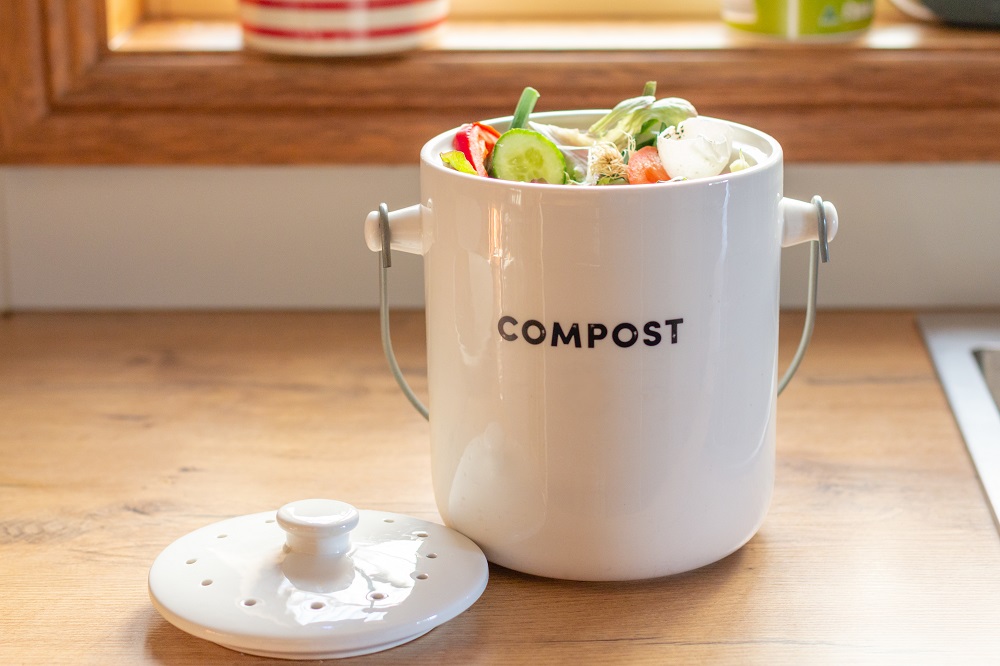
What are the bristles on bamboo toothbrushes made of?
The bristles are made from vegan, BPA-free nylon, so you don’t have to worry about unwanted chemicals. Although they’re not biodegradable, they can be extracted for recycling at your local centre (make sure to check the guidelines). You may be wondering why the bristles aren’t made from bamboo too, but BPA-free nylon is the best ethical option on the market right now that can clean your teeth efficiently. Dental health is important, something we believe shouldn’t be compromised on.
As the rest of the toothbrush is made from bamboo, you’d still be choosing an option with 95% less plastic than any other mainstream toothbrush.
How to dispose of bamboo toothbrush
As we mentioned, you can dispose of the handle with green garden waste or recycle it with wood (check local recycling guidelines). Better yet, you could reuse it in the garden as a plant marker or save it for arts and crafts, perfect for keeping the kids entertained in lockdown. As for the bristles, carefully pluck them out using a pair of tweezers and store them safely, then take them to your local recycling centre (if the guidelines say so).
Or you could keep the toothbrush as it is and reuse it as a cleaning tool to get in any awkward corners of your home.
How to store a bamboo toothbrush
Bamboo is kept best in a dry area so using a toothbrush cup may not be the best option as they collect water. Instead, try an open-air holder or leave it in an open storage box in your bathroom and lightly dry it with a towel after use. Bamboo is easy to care for because it’s naturally antimicrobial, preventing the growth of bacteria on your toothbrush. Don’t worry if you’re brush fades in colour over time, that’s normal.
However, if you prefer a cup to store your toothbrush in, the Non Plastic Beach Biodegradable Bamboo Toothbrush does feature an anti-mould protective coating on the bottom, which (as long as you clean your cup regularly) should help protect it from going mouldy.
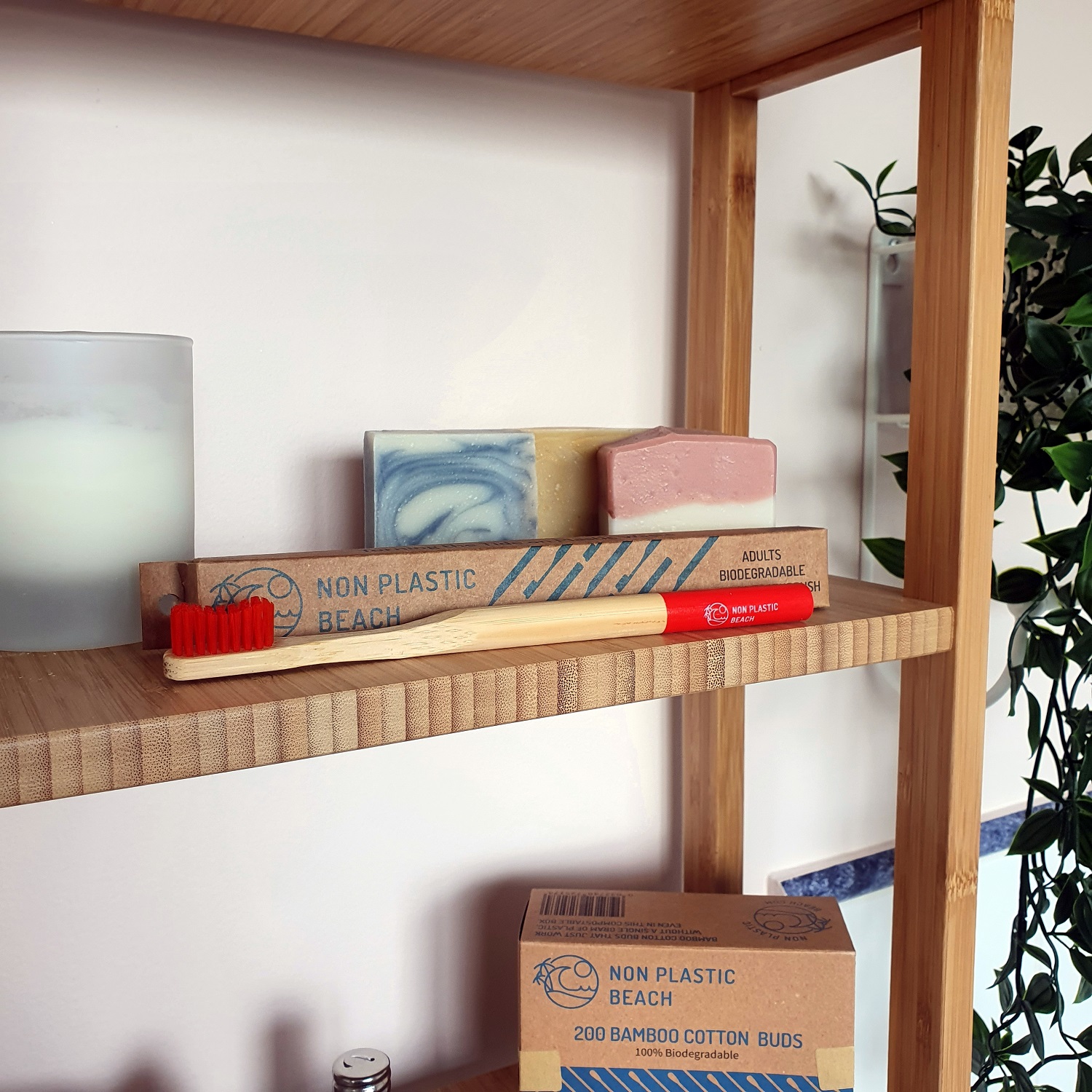
How often should I change my bamboo toothbrush?
Dentists recommend that we change our toothbrushes every three months no matter if they’re plastic or bamboo, for more information on brushing tips and information, read our guide.
What happens after? For every 1 billion toothbrushes, 50 million pounds of plastic waste is added to landfills. According to National Geographic, if everyone in the world replaced their toothbrushes every three months, about 23 billion end up piled in landfill or polluting the oceans. That’s a hefty number!
So, choosing and disposing of your bamboo toothbrush is important. What’s more, being sustainable doesn’t mean you should bin your plastic toothbrush right this second. You should use it for the recommended amount of time before purchasing a bamboo toothbrush, otherwise you will have wasted plastic without using it efficiently.
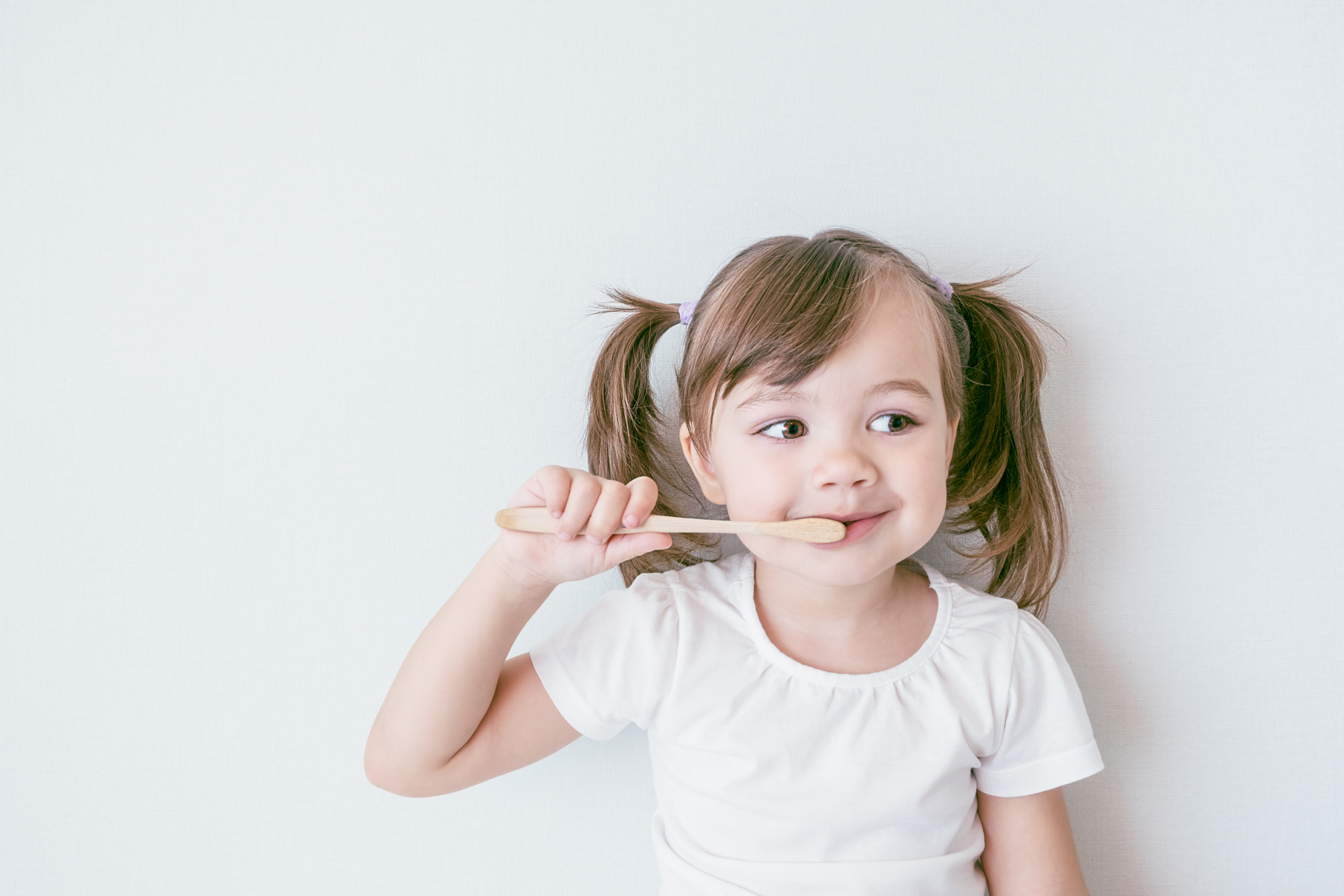
Are bamboo toothbrushes good for teeth?
According to Colgate, “bamboo toothbrushes can be just as good for your teeth as plastic toothbrushes” so a sustainable and 95% compostable toothbrush that does the job, what’s not to love?
Although the Non Plastic Beach Biodegradable Bamboo Toothbrush bristles aren’t biodegradable, it has drastically reduced the amount of plastic waste, therefore it’s a huge positive step. Besides, 95% is immensely better than 0%. The bamboo toothbrush is the ideal choice for healthy dental care that’s environmentally friendly.
